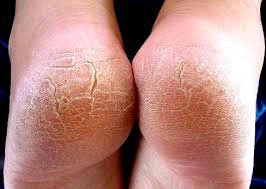Corns and calluses are thick layers of skin that have been hardened as the skin attempts to protect itself from pressure or friction by developing calluses or corns. If you’re otherwise healthy, you don’t have to have them treated unless they give you discomfort or you just don’t like the way they appear. The majority of individuals may have their symptoms resolved by by eliminating the factor that causes the friction.
What are corns and calluses?
The accumulation of tough, thickened regions of skin on your body may give rise to corns and calluses. Corns may form anywhere on the tops or sides of your toes, although they are more often seen on the tops. There are many different kinds of corns, some of them are soft and spherical while others are tough and thick.
Calluses are areas of the skin that are rough and dense. Calluses are bigger than corns and have a form that is more asymmetrical and uneven (more spread out) than corns. Calluses are more prone to form on the bottom of the foot, particularly on the bony prominences that bear the brunt of your weight.]
Simple Solutions To Try
Misusing corn plasters may harm healthy surrounding skin. You risk infection if you cut or scrape a callus. Podiatrists can cure corns and calluses. Callus or corn removal may ease pain. Pressure-relieving shoe inserts (orthoses). Daily moisturizing is recommended for foot care.
Exfoliation by chemical means
This therapy makes use of liquids such as fruit enzymes or citric acid to exfoliate dead skin that has accumulated on the foot. Scrubs for the feet and peels often include solutions that contain fruit enzymes. Rub the skin with the abrasive side of a pumice stone in a circular motion while applying just a little bit of pressure. As a consequence of the friction, the dead skin cells will start to deteriorate and fall off.
Soak your feet in water with a few drops of essential oil in it.
Your feet will feel much better after using essential oils since they will be elevated, relaxed, and softer after using them. Feet and ankles that are swollen and fatigued might benefit from salt. The most effective treatment for aches and pains brought on by lengthy periods of standing, moving, or walking in footwear that is not appropriate for the activity.
Epsom salt plus a few drops of aromatic oils make a delectable foot soak, so give it a try and soak your feet in it. You may choose how much warm water to add, and then just sit back and watch your concerns melt away. Do you feel worn out, achy, or painful? A foot soak may provide some much-needed TLC for tired feet that have been on their feet all day.
The best scrub for hard skin on your feet
OTC medicines treat corns and calluses. Pain and pressure are relieved.
Corn plasters are thin, sticky rubber rings. Corns are relieved. They thicken corn-area skin.
Callus pads-like. Sticky calluses. Reduce pressure and friction.
Warm water softens calluses and corns. Rub corns or calluses with your finger or pumice stone. Other soaks include apple cider vinegar and tea tree oil.
Doctors should examine unresponsive corns and calluses. They might be medical.
Hyperkeratosis Can Affect Your Feet
A surplus of keratin is the cause of the abnormal thickening that has occurred. Because it serves to defend your skin from damage, this brittle and fibrous protein is of the utmost importance. In the event that your skin becomes abnormally thick, you may quickly run into difficulties. It could take you longer than normal to realize that you have hurt your foot or that you have an infection.
 Moni Malawi
Moni Malawi 
